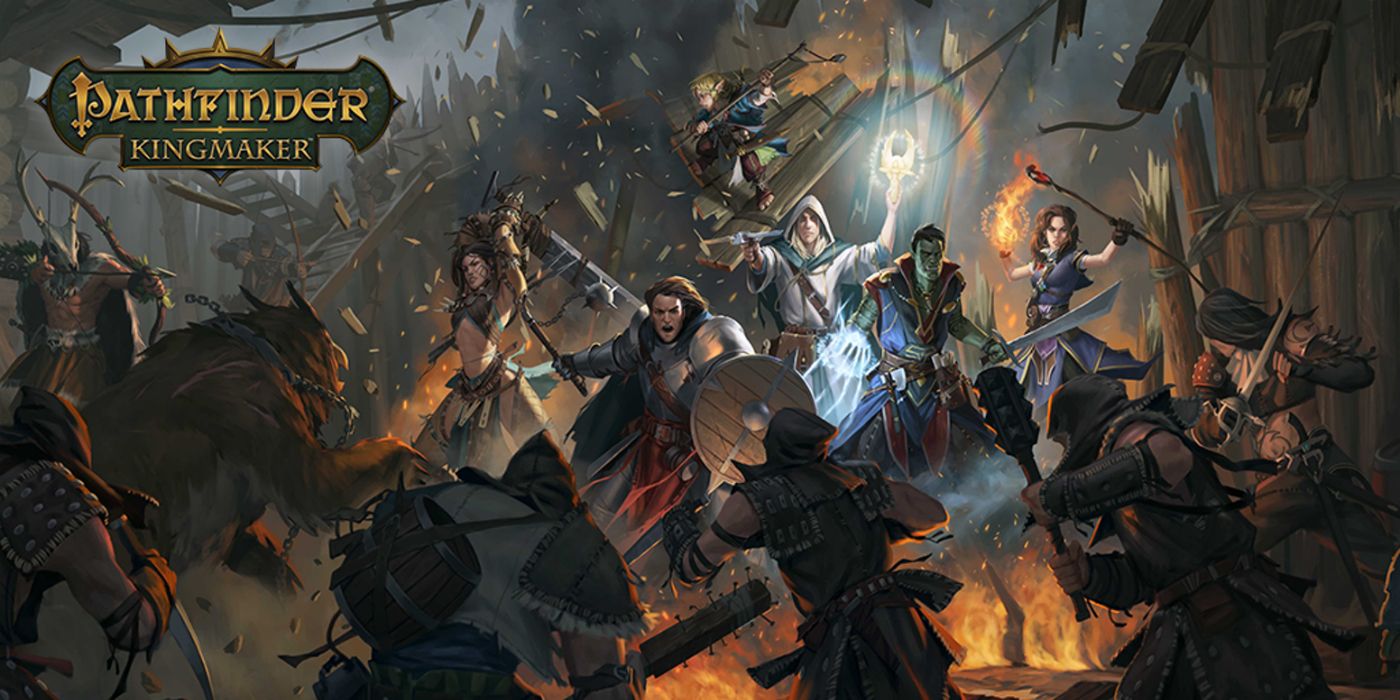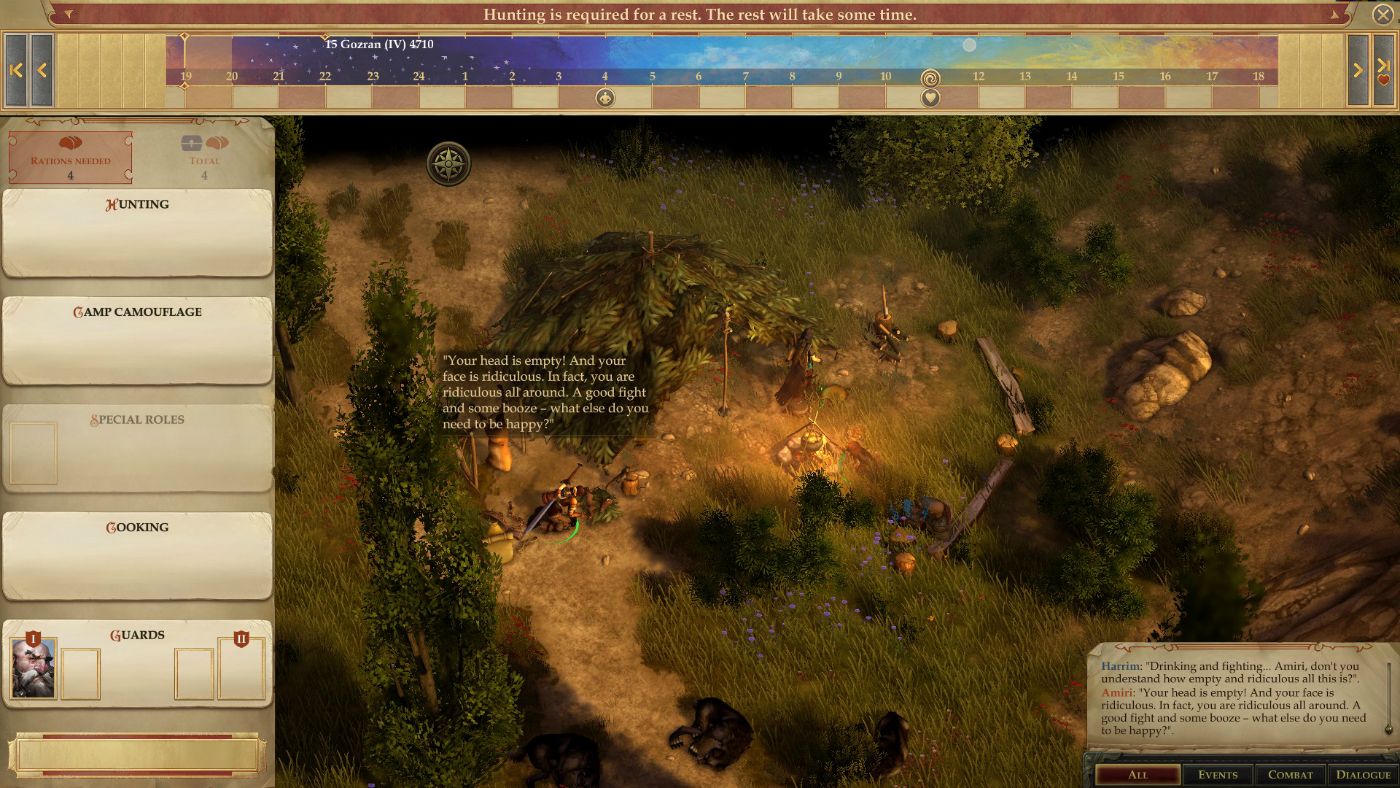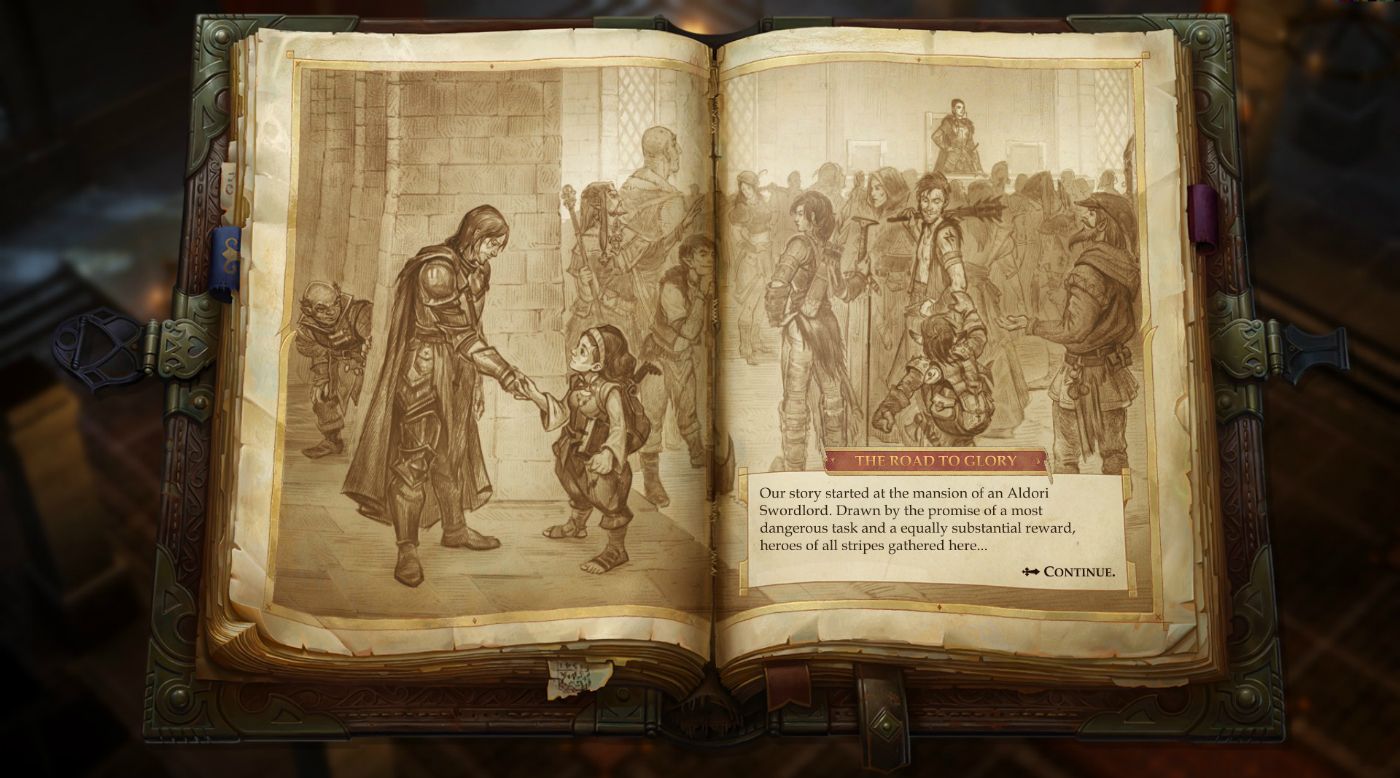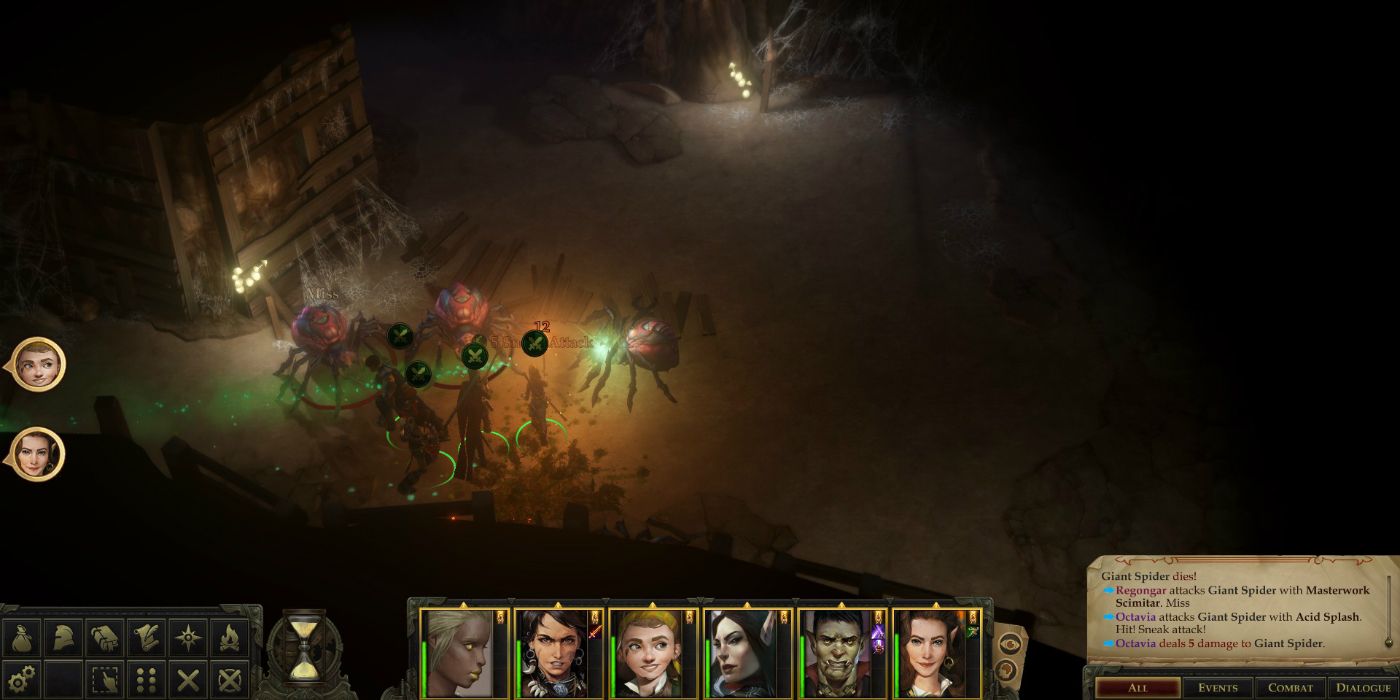Pathfinder: Kingmaker requires little introduction to the subsection of gamers who it appeals to most. The Pathfinder tabletop role-playing game is one of the precious few iterations of the genre to ever truly challenge Dungeons & Dragons for both depth and popularity, although part of that is because it is ostensibly an off-shoot of the official D&D game. The Pathfinder brand still has a number of passionate fanbases across the globe that swear by its particular brand of fantasy, though, making it a desirable target for spin-offs of its own.
Deep Silver and Owlcat Games are hoping that their take on Pathfinder can do wonders for the property, especially given the recent resurgence of tabletop gaming as a pastime. Pathfinder: Kingmaker follows in the footsteps of recently popular titles like Pillars of Eternity and Divinity: Original Sin, but manages to do enough to separate itself from the pack and create yet another deep, engaging experience in an isometric RPG setting.
Related: New Dungeons & Dragons Card Game Promises Fast, Fun Gameplay
Pathfinder: Kingmaker wants players to feel like they are playing a tabletop RPG, and it succeeds at every step in simulating that experience. Whether it’s the complex array of skills and abilities that refresh as time progresses, much like a tabletop campaign, or the rolls of the dice in the combat log that determine how successful a battle will be, Pathfinder: Kingmaker nails the tabletop experience.
With that said, it’s at least a little curious as to why Deep Silver and Owlcat Games felt the need to embrace the tabletop feel quite so ferociously. Part of what makes isometric RPGs appealing is the way they can hide some of the more cumbersome mechanics of real-life fantasy gaming. While Pathfinder: Kingmaker never threatens to really break under the pressure of so many numbers and algorithms, the fact that they’re almost constantly on display by default is surprising, especially given the way that combat is structured.
Battles are instigated by a player-initiated attack or when a party is spotted by an enemy, and things progress in typical isometric RPG fashion from there. Players can pause to adjust their tactics at any time, but otherwise the game plays out smoothly, with combat progressing in real-time. Positioning party members and wisely employing their limited use abilities to best effect is crucial to success in Pathfinder: Kingmaker, and it’s a welcome tactical element that marries the better parts of tabletop and video gaming together.
Like any good fantasy tabletop campaign, Pathfinder: Kingmaker also features a multitude of options, many of which enable players to avoid all but the most important fights if they choose to do so. While random encounters are hardly worth advance planning for, some of the mid-boss style fights can be anticipated and prepared for. In one instance, knowing that bandits were likely to reciprocate an attack the party had made earlier, the player is given the option to coat the walls of their hold in oil and launch a fire arrow at the walls once the bandits try to breach them. Things work out the way one might expect and the light show is very satisfying.
Pathfinder: Kingmaker also gets skill checks right in a way that it feels like many modern RPGs are moving away from. Skills in what amounts to the equivalent of Lore often feel useless in less methodically made games, but in this one knowing a bunch about nature is actually incredibly useful and comes up often. The same is true for every other skill, too - each map seems meticulously designed to enable the player to tackle things the way they would like to.
Two things stand out beyond the excellent craftmanship in Pathfinder: Kingmaker. The first is the storybook moments that occur with a relatively decent frequency throughout the narrative campaign. Key moments are read out of a character’s on-going chronicles of the player’s journey, and are presented in the book, complete with illustrations. Players are then forced to make a choice based on a number of options, quite like a Choose-Your-Own-Adventure, and must then deal with the consequences. For whatever reason, this mode feels like a home run, once again paying homage to some of the earliest methods of fantasy roleplay available.
The second innovation is the Barony management portion of the gameplay. After the game’s introductory chapters, the player will suddenly find themselves in possession of a lot of land, and a number of subjects to rule over. From there, players will be tasked with addressing threats to their land, expanding to increase their power, appointing advisers to handle less important tasks, and meeting with diplomats and townsfolk alike. If that sounds dull, perhaps in a different game it would be - the sheer amount of variety and detail put into each and every one of these managerial elements makes them a lot of fun, and they have some serious importance to the overall game too. For those uninterested in the Sim City-like management portions of the game, there’s also the option to auto simulate them, ensuring that the cities will never fail.
If there are any stumbles present in Pathfinder: Kingmaker, it’s in the pace of play. While the combat itself is fluid and moves in real-time, the narrative moves slowly, and the emphasis on passing days or weeks can be a real drag. While it makes sense that the campaign would feature an open world and a lot of choices to be made, sometimes it comes across as more aimless than inspiring. The introduction of the game, in particular, drags - players don’t even get access to their Barony for several hours, which is puzzling since it’s one of the more innovative and welcome elements of the title. That’s a major issue, since RPGs are already time sinks and failing to make much of an impression in the first six-or-so hours of gameplay is playing with fire.
That being said, there’s plenty to dig into in Pathfinder: Kingmaker, and even if the early introduction overstays its welcome, there are many more hours afterwards that make the game worth the wait. If gamers can find room for yet another long, beautifully-crafted isometric RPG in their schedules, they probably can’t do much better for recent offerings than Pathfinder: Kingmaker.
More: Divinity: Original Sin 2 Definitive Edition Review - A Fantastic Console Conversion
Pathfinder: Kingmaker is available on Steam. A Steam review code was provided to Screen Rant for the purposes of this review.




